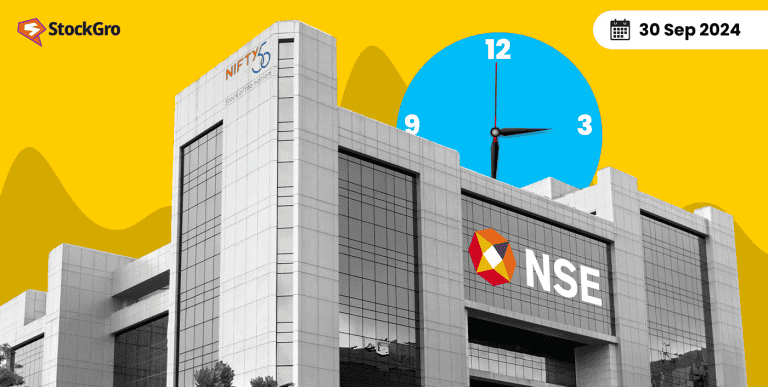
Are You Ready for India’s Biggest-Ever IPO?
With the approval from SEBI, Hyundai Motor India is set to launch an Initial Public Offering (IPO) that could potentially break all records in India. Here’s what you need to know about this landmark event in the financial year.
Introduction
Hyundai Motor India Limited (HMIL), a subsidiary of Hyundai Motor Company, entered the Indian market in 1996 and quickly became the country’s second-largest carmaker. Known for popular models like the Santro and Creta, Hyundai has built a reputation for innovation, reliability, and customer satisfaction. With two manufacturing units in Tamil Nadu, the company produces 7.5 lakh units annually and is the largest exporter of passenger vehicles in India.
Hyundai’s cars are sold in over 88 countries, and its diverse product range caters to a wide audience in India. The company’s success is rooted in its commitment to quality and market-leading design. This upcoming IPO marks a pivotal moment for Hyundai Motor India, positioning it for further growth in the ever-expanding automotive landscape.
Hyundai Motor India IPO
Hyundai Motor India Limited, a subsidiary of South Korea’s Hyundai Motor Company, is gearing up to launch one of the biggest IPOs in India’s history. The carmaker, known for popular models like the Creta, i20, and Venue, has captured nearly 15% of the Indian domestic car market and holds the title of India’s second-largest car manufacturer behind Maruti Suzuki.
The IPO will consist of 142.2 million shares, making up 17.5% of the company’s total equity. The shares will be sold through an Offer for Sale (OFS), which means all the proceeds will go to the parent company, Hyundai Motor Company, not the Indian subsidiary.
| Event | Detail |
| IPO Size | ₹25,000 crore (approximately $3 billion) |
| Type of Offering | Offer for Sale (OFS) |
| Shares Offered | 142 million shares (17.5% stake) |
| Stock Listing | BSE and NSE |
| Parent Company | Hyundai Motor Company (South Korea) |
| Purpose | Enhance visibility and liquidity, funds go to the parent company |
Hyundai Motor India IPO – Key figures
| Metric | Value |
| Valuation of Hyundai Motor India | ₹1.5 lakh crore ($18 billion) |
| Market Share (SUV segment) | 19% (down from 24% three years ago) |
| Number of Vehicles Sold | Nearly 12 million since 1998 |
| Sales Outlets (India) | 1,366 outlets as of FY 2024 |
| Service Centres (India) | 1,550 service centres |
This will mark Hyundai’s entry into the public markets, following in the footsteps of Maruti Suzuki, which went public in 2003. Hyundai’s IPO is expected to enhance its market presence and provide liquidity, allowing the public to own a piece of one of the country’s leading automobile manufacturers.
How Hyundai fits into India’s automotive landscape
Established in 1996, Hyundai Motor India has become a powerhouse in the country’s automotive sector. It is currently the second-largest automaker after Maruti Suzuki, commanding a market share of about 15%. The company has sold nearly 12 million passenger vehicles in India and through exports as of March 31, 2024. Hyundai has been a consistent leader in the Indian export market since 2005, further cementing its stronghold in the automotive space.
| Financial Metric | FY 2024 | FY 2023 | FY 2022 | FY 2021 |
| Revenue | ₹61,436 crore | ₹53,298 crore | ₹47,966 crore | ₹41,404 crore |
| Profit After Tax | ₹4,709 crore | ₹4,382 crore | ₹2,901 crore | ₹1,881 crore |
| Total Assets | ₹34,573 crore | ₹32,488 crore | ₹28,358 crore | ₹26,730 crore |
| Net Worth | ₹20,054 crore | ₹19,777 crore | ₹16,856 crore | ₹15,311 crore |
Despite its dominant position, Hyundai faces stiff competition, particularly in the SUV segment, where its market share has dropped from 24% to 19% in recent years. Models like the Creta and Venue have been major contributors to its success, but the influx of new players like Kia and Tata Motors has intensified the competition.
Why is this IPO so significant?
This IPO marks the first auto manufacturer listing in India since Maruti Suzuki’s 2003 IPO. It is expected to surpass LIC’s ₹21,008 crore IPO from 2022, making it the largest IPO in Indian history.
Hyundai’s move to go public is also significant because it reflects the company’s commitment to growing in India, one of the world’s fastest-growing car markets. Over the years, Hyundai has exported millions of vehicles from its Chennai plant, making India its third-largest revenue market, after the UK and South Korea.
Hyundai Motor’s Strengths
- Global Reach: Hyundai exports vehicles to more than 150 countries from India.
- Market Leadership: Hyundai is India’s largest exporter of passenger vehicles since FY 2005.
- Diverse Portfolio: With a strong lineup of 13 models, including SUVs, hatchbacks, sedans, and EVs, Hyundai caters to all types of consumers.
- Strong Financials: Hyundai India has shown consistent profit growth, doubling its profits over three years.
Key Risks to Consider
- Internal Competition: Hyundai’s sister company, Kia, also operates in India, potentially leading to competition between the two brands.
- Reliance on SUVs: Hyundai’s success is largely dependent on the SUV segment, which could pose a risk if demand falters.
- Supply Chain Vulnerabilities: Hyundai’s operations are heavily centralized at its Chennai plant. Disruptions, whether from natural disasters or political issues, could affect production.
Hyundai’s position in the market
Hyundai operates over 1,366 sales outlets and 1,550 service centres across India, providing it with an extensive reach. The company manufactures a wide range of vehicles, from hatchbacks and sedans to SUVs and electric cars.
Hyundai’s Creta and Venue SUVs are among its most popular models, and the company continues to innovate with models like the all-electric SUV Ioniq 5. However, Hyundai’s reliance on the SUV segment has introduced risks, as any downturn in demand for these vehicles could impact the company’s overall performance.
| Hyundai’s Market Position | Detail |
| SUV Market Share (FY 2024) | 19% |
| Total Vehicles Sold (since 1998) | Nearly 12 million |
| Export Markets | Africa, Middle East, Bangladesh, Nepal |
| Manufacturing Capacity | Located near Chennai, with expansion plans |
Should you invest in Hyundai Motor India’s IPO?
This IPO presents a compelling opportunity for both retail and institutional investors. The automotive industry, especially players with a strong foothold like Hyundai, stands to benefit from India’s expanding middle class and increasing disposable incomes. Additionally, the shift towards electric vehicles (EVs) and sustainable transportation solutions places Hyundai in a strong position to capitalize on future trends.
However, it’s crucial to consider the risks. The Indian automotive market is highly competitive, and Hyundai’s market share in SUVs has seen a slight decline recently. Investors should weigh the company’s solid export numbers and revenue growth against these factors.
Some key considerations before investing:
- Market Leadership: Hyundai is a market leader with a strong track record.
- IPO Valuation: The ₹25,000 crore issue offers an attractive valuation.
- Risk Factors: Declining market share in SUVs and increasing competition.
How to apply for the Hyundai Motor IPO
Applying for the IPO is easy, and you can do it through popular trading platforms like Zerodha, Angel One, or your bank’s trading services.
- Log in to your trading account.
- Navigate to the IPO section.
- Select the Hyundai Motor IPO from the list.
- Enter the lot size (minimum lot size will be revealed later).
- Submit your UPI ID for payment.
- Approve the mandate on your UPI app.
Keep an eye on notifications to check the IPO allotment status.
How to maximise allotment chances
- Use multiple Demat accounts under different names.
- Bid at the cut-off price to increase your chances of getting an allotment.
- Make sure to apply on time during the bidding period.
What’s next for Hyundai?
With the IPO proceeds, Hyundai plans to strengthen its brand in India while also expanding its Electric Vehicle (EV) lineup and upgrading its production facilities. Hyundai’s future in India looks promising, especially with the country’s growing appetite for EVs, and this IPO could position the automaker to capitalise on this market. India is set to have 2.5 million electric vehicles on the road by 2025, and Hyundai is aiming to be a major player in this space. With investments in sustainable practices and a robust dealer network, Hyundai is well-poised for growth.

